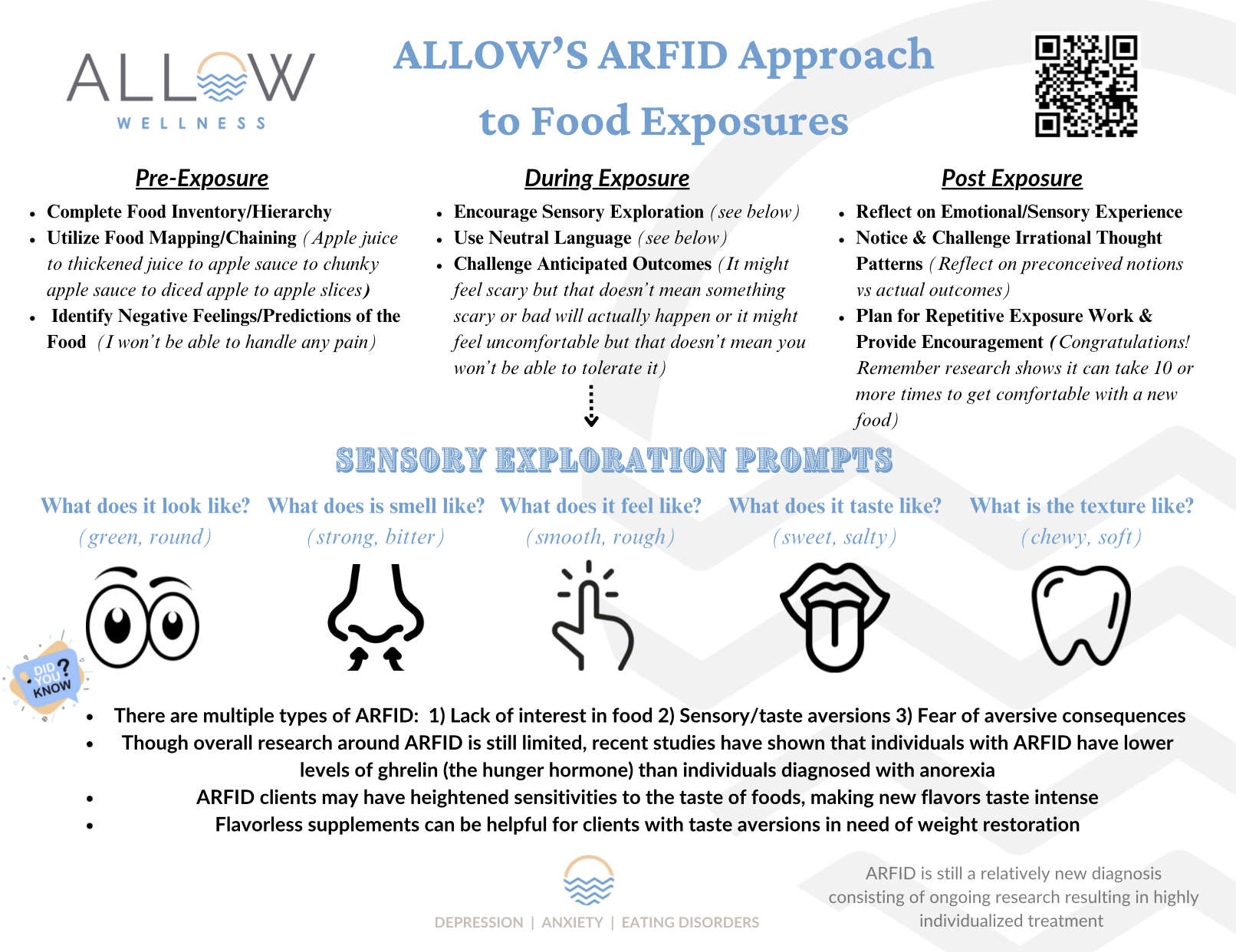Allow’s Treatment Approach for ARFID
Treatment for ARFID typically involves a multidisciplinary approach that addresses both the physical and psychological aspects of the disorder. Here are some common components of ARFID treatment:
Physical, Psychological, & Nutritional Evaluation: A thorough assessment is crucial to identify any underlying medical issues, nutritional deficiencies, and/or comorbid psychological disorders. A healthcare professional, such as a pediatrician, general physician, dietitian or nutritionist, psychologist or counselor, are involved in this phase.
Nutritional Counseling: A registered dietitian or nutritionist can work with the individual and their family to develop a nutrition plan that addresses nutritional gaps and promotes a balanced diet. They may gradually introduce new foods and textures.
Behavioral Therapy: Behavioral interventions, such as cognitive-behavioral therapy (CBT), may be used to address the psychological aspects of ARFID. This can help individuals and their families understand and modify the thoughts and behaviors that contribute to the avoidance of certain foods.
Exposure Therapy: Gradual exposure to feared foods in a structured and supportive manner is a common component of ARFID treatment. This involves introducing new foods slowly, starting with those that are similar to those already accepted and gradually progressing to more challenging options.
Family-Involvement: Treatment involves the family as an integral part of the treatment process. Parents or loved ones are actively involved in supporting their client's eating, and the focus is on restoring normal eating patterns.
Occupational Therapy: Some individuals with ARFID may have sensory sensitivities or oral-motor difficulties. Occupational therapy can help address these issues and improve tolerance to a variety of food textures.
Medical Monitoring: Regular medical check-ups are essential to monitor the individual's physical health and ensure that any nutritional deficiencies or complications are addressed promptly.
Psychiatric Support: In cases where there are co-existing mental health issues, such as anxiety or depression, psychiatric support may be beneficial. Medications may be prescribed as part of the treatment plan.
It's important to note that treatment plans are individualized based on the specific needs and circumstances of each person with ARFID. Collaboration among healthcare professionals, including physicians, dietitians, therapists, and family members, is often key to a successful outcome.
Recommended Resources for Professionals & Clients/Caregivers Wanting To Learn More


